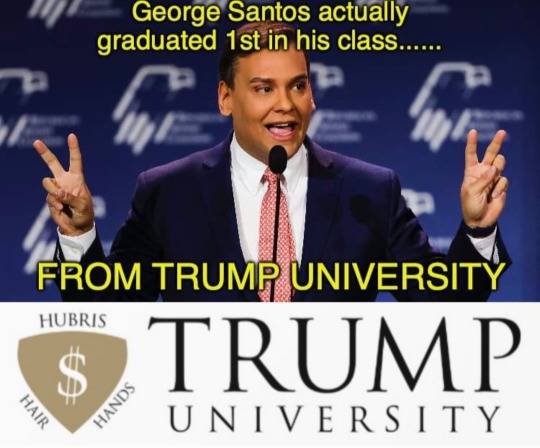#Trump university
Text
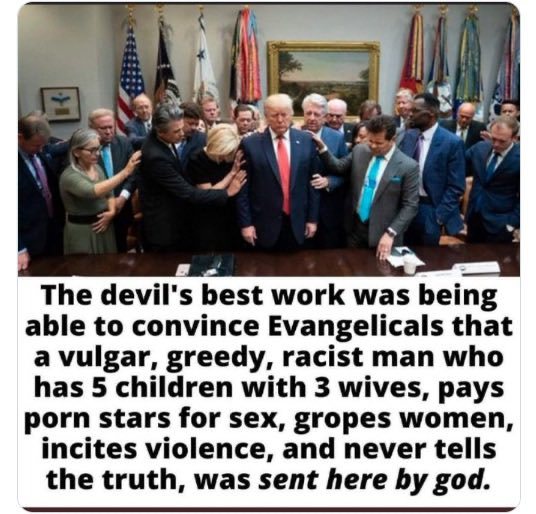
384 notes
·
View notes
Text
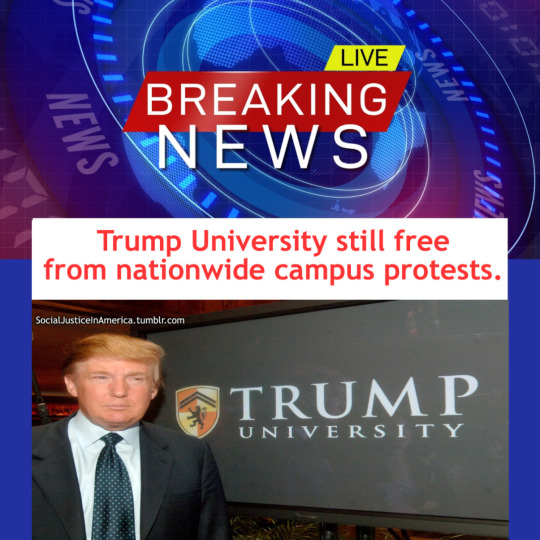
#never trump#Trump university#campus protests#republican assholes#traitor trump#crooked donald#republican hypocrisy#corporate greed#republican party#Trump university was another Trump failure
111 notes
·
View notes
Text

41 notes
·
View notes
Text

#trump university#grifter trump#republican assholes#traitor trump#crooked donald#maga morons#trump crime syndicate
57 notes
·
View notes
Text

#donald trump#grifters gonna grift#perpetual victim#con artist#criminal minds#trump university#scammers#gop#right wing extremism#vote joe biden#vote blue#biden harris 2024#trump failed businesses#king of bullshit
52 notes
·
View notes
Text
Bill Prutt for Slate:
On Jan. 8, 2004, just more than 20 years ago, the first episode of The Apprentice aired. It was called “Meet the Billionaire,” and 18 million people watched. The episodes that followed climbed to roughly 20 million each week. A staggering 28 million viewers tuned in to watch the first season finale. The series won an Emmy nomination for Outstanding Reality-Competition Program, and the Television Critics Association called it one of the best TV shows of the year, alongside The Sopranos and Arrested Development. The series—alongside its bawdy sibling, The Celebrity Apprentice—appeared on NBC in coveted prime-time slots for more than a decade.
The Apprentice was an instant success in another way too. It elevated Donald J. Trump from sleazy New York tabloid hustler to respectable household name. In the show, he appeared to demonstrate impeccable business instincts and unparalleled wealth, even though his businesses had barely survived multiple bankruptcies and faced yet another when he was cast. By carefully misleading viewers about Trump—his wealth, his stature, his character, and his intent—the competition reality show set about an American fraud that would balloon beyond its creators’ wildest imaginations.
I should know. I was one of four producers involved in the first two seasons. During that time, I signed an expansive nondisclosure agreement that promised a fine of $5 million and even jail time if I were to ever divulge what actually happened. It expired this year.
No one involved in The Apprentice—from the production company or the network, to the cast and crew—was involved in a con with malicious intent. It was a TV show, and it was made for entertainment. I still believe that. But we played fast and loose with the facts, particularly regarding Trump, and if you were one of the 28 million who tuned in, chances are you were conned.
As Trump answers for another of his alleged deception schemes in New York and gears up to try to persuade Americans to elect him again, in part thanks to the myth we created, I can finally tell you what making Trump into what he is today looked like from my side. Most days were revealing. Some still haunt me, two decades later.
[...]
Now, this is important. The Apprentice is a game show regulated by the Federal Communications Commission. In the 1950s, scandals arose when producers of quiz shows fed answers to likable, ratings-generating contestants while withholding those answers from unlikable but truly knowledgeable players. Any of us involved in The Apprentice swinging the outcome of prize money by telling Trump whom to fire is forbidden.
[...]
Trump goes about knocking off every one of the contestants in the boardroom until only two remain. The finalists are Kwame Jackson, a Black broker from Goldman Sachs, and Bill Rancic, a white entrepreneur from Chicago who runs his own cigar business. Trump assigns them each a task devoted to one of his crown-jewel properties. Jackson will oversee a Jessica Simpson benefit concert at Trump Taj Mahal Casino in Atlantic City, while Rancic will oversee a celebrity golf tournament at Trump National Golf Club in Briarcliff Manor, New York.
Viewers need to believe that whatever Trump touches turns to gold. These properties that bear his name are supposed to glitter and gleam. All thanks to him.
Reality is another matter altogether. The lights in the casino’s sign are out. Hong Kong investors actually own the place—Trump merely lends his name. The carpet stinks, and the surroundings for Simpson’s concert are ramshackle at best. We shoot around all that.
Both Rancic and Jackson do a round-robin recruitment of former contestants, and Jackson makes the fateful decision to team up with the notorious Omarosa, among others, to help him carry out his final challenge.
[...]
Trump will make his decision live on camera months later, so what we are about to film is the setup to that reveal. The race between Jackson and Rancic should seem close, and that’s how we’ll edit the footage. Since we don’t know who’ll be chosen, it must appear close, even if it’s not.
We lay out the virtues and deficiencies of each finalist to Trump in a fair and balanced way, but sensing the moment at hand, Kepcher sort of comes out of herself. She expresses how she observed Jackson at the casino overcoming more obstacles than Rancic, particularly with the way he managed the troublesome Omarosa. Jackson, Kepcher maintains, handled the calamity with grace.
“I think Kwame would be a great addition to the organization,” Kepcher says to Trump, who winces while his head bobs around in reaction to what he is hearing and clearly resisting.
“Why didn’t he just fire her?” Trump asks, referring to Omarosa. It’s a reasonable question. Given that this the first time we’ve ever been in this situation, none of this is something we expected.
“That’s not his job,” Bienstock says to Trump. “That’s yours.” Trump’s head continues to bob.
“I don’t think he knew he had the ability to do that,” Kepcher says. Trump winces again.
“Yeah,” he says to no one in particular, “but, I mean, would America buy a n— winning?”
Kepcher’s pale skin goes bright red. I turn my gaze toward Trump. He continues to wince. He is serious, and he is adamant about not hiring Jackson.
Bienstock does a half cough, half laugh, and swiftly changes the topic or throws to Ross for his assessment. What happens next I don’t entirely recall. I am still processing what I have just heard. We all are. Only Bienstock knows well enough to keep the train moving. None of us thinks to walk out the door and never return. I still wish I had. (Bienstock and Kepcher didn’t respond to requests for comment.)
Afterward, we film the final meeting in the boardroom, where Jackson and Rancic are scrutinized by Trump, who, we already know, favors Rancic. Then we wrap production, pack up, and head home. There is no discussion about what Trump said in the boardroom, about how the damning evidence was caught on tape. Nothing happens.
We attend to our thesis that only the best and brightest deserve a job working for Donald Trump. Luckily, the winner, Bill Rancic, and his rival, Kwame Jackson, come off as capable and confident throughout the season. If for some reason they had not, we would have conveniently left their shortcomings on the cutting room floor. In actuality, both men did deserve to win.
Without a doubt, the hardest decisions we faced in postproduction were how to edit together sequences involving Trump. We needed him to sound sharp, dignified, and clear on what he was looking for and not as if he was yelling at people. You see him today: When he reads from a teleprompter, he comes off as loud and stoic. Go to one of his rallies and he’s the off-the-cuff rambler rousing his followers into a frenzy. While filming, he struggled to convey even the most basic items. But as he became more comfortable with filming, Trump made raucous comments he found funny or amusing—some of them misogynistic as well as racist. We cut those comments. Go to one of his rallies today and you can hear many of them.
If you listen carefully, especially to that first episode, you will notice clearly altered dialogue from Trump in both the task delivery and the boardroom. Trump was overwhelmed with remembering the contestants’ names, the way they would ride the elevator back upstairs or down to the street, the mechanics of what he needed to convey. Bienstock instigated additional dialogue recording that came late in the edit phase. We set Trump up in the soundproof boardroom set and fed him lines he would read into a microphone with Bienstock on the phone, directing from L.A. And suddenly Trump knows the names of every one of the contestants and says them while the camera cuts to each of their faces. Wow, you think, how does he remember everyone’s name? While on location, he could barely put a sentence together regarding how a task would work. Listen now, and he speaks directly to what needs to happen while the camera conveniently cuts away to the contestants, who are listening and nodding. He sounds articulate and concise through some editing sleight of hand.
Then comes the note from NBC about the fact that after Trump delivers the task assignment to the contestants, he disappears from the episode after the first act and doesn’t show up again until the next-to-last. That’s too long for the (high-priced) star of the show to be absent.
There is a convenient solution. At the top of the second act, right after the task has been assigned but right before the teams embark on their assignment, we insert a sequence with Trump, seated inside his gilded apartment, dispensing a carefully crafted bit of wisdom. He speaks to whatever the theme of each episode is—why someone gets fired or what would lead to a win. The net effect is not only that Trump appears once more in each episode but that he also now seems prophetic in how he just knows the way things will go right or wrong with each individual task. He comes off as all-seeing and all-knowing. We are led to believe that Donald Trump is a natural-born leader.
Through the editorial nudge we provide him, Trump prevails. So much so that NBC asks for more time in the boardroom to appear at the end of all the remaining episodes. (NBC declined to comment for this article.)
[...
So, we scammed. We swindled. Nobody heard the racist and misogynistic comments or saw the alleged cheating, the bluffing, or his hair taking off in the wind. Those tapes, I’ve come to believe, will never be found.
No one lost their retirement fund or fell on hard times from watching The Apprentice. But Trump rose in stature to the point where he could finally eye a run for the White House, something he had intended to do all the way back in 1998. Along the way, he could now feed his appetite for defrauding the public with various shady practices.
In 2005 thousands of students enrolled in what was called Trump University, hoping to gain insight from the Donald and his “handpicked” professors. Each paid as much as $35,000 to listen to some huckster trade on Trump’s name. In a sworn affidavit, salesman Ronald Schnackenberg testified that Trump University was “fraudulent.” The scam swiftly went from online videoconferencing courses to live events held by high-pressure sales professionals whose only job was to persuade attendees to sign up for the course. The sales were for the course “tuition” and had nothing whatsoever to do with real estate investments. A class action suit was filed against Trump.
That same year, Trump was caught bragging to Access Hollywood co-host Billy Bush that he likes to grab married women “by the pussy,” adding, “When you’re a star, they let you do it.” He later tried to recruit porn actor Stormy Daniels for The Apprentice despite her profession and, according to Daniels, had sex with her right after his last son was born. (His alleged attempt to pay off Daniels is, of course, the subject of his recent trial.)
In October 2016—a month before the election—the Access Hollywood tapes were released and written off as “locker room banter.” Trump paid Daniels to keep silent about their alleged affair. He paid $25 million to settle the Trump University lawsuit and make it go away.
He went on to become the first elected president to possess neither public service nor military experience. And although he lost the popular vote, Trump beat out Hillary Clinton in the Electoral College, winning in the Rust Belt by just 80,000 votes.
Trump has been called the “reality TV president,” and not just because of The Apprentice. The Situation Room, where top advisers gathered, became a place for photo-ops, a bigger, better boardroom. Trump swaggered and cajoled, just as he had on the show. Whom would he listen to? Whom would he fire? Stay tuned. Trump even has his own spinoff, called the House of Representatives, where women hurl racist taunts and body-shame one another with impunity. The State of the Union is basically a cage fight. The demands of public office now include blowhard buffoonery.
Bill Pruitt wrote in Slate that Donald Trump used the N-word on the set of NBC's The Apprentice in 2004 when referring to a Black contestant (Kwame Jackson)'s chances of winning the competition by saying "would America buy a n***er winning?"
This is yet another example of Trump's long record of anti-Black racism that dates back to the 1970s.
#Bill Pruitt#Donald Trump#The Apprentice#Kwame Jackson#Reality Television#Race#Racism#Anti Black Racism#Bill Rancic#Trump University#2005 Trump Access Hollywood Tape#Omarosa Manigault#Carolyn Kepcher#George Ross#Jay Bienstock
24 notes
·
View notes
Text
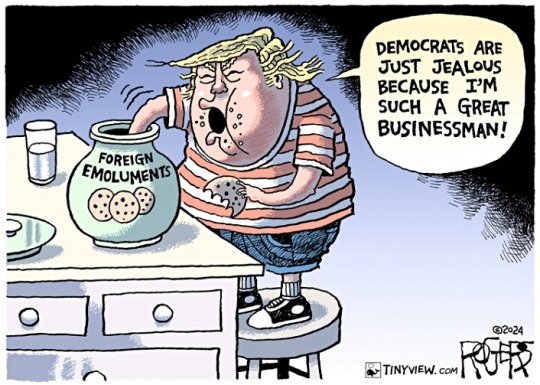
A lot of Trump supporters still try to hide their racism by claiming they vote for Trump because he's allegedly a great businessman. 🤨
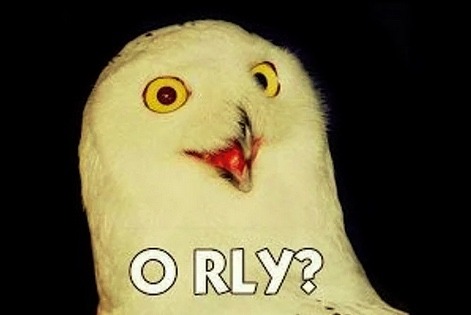
A lengthy list of Trump’s disastrous business deals — compiled by his newest business partners
Trump was not great at business. He's a nepo baby who got tons of money from Daddy Fred and stupidly squandered much of it. At best, he was a con man who managed to swindle some people out of their money. Remember Trump University?
Trump wasn't great at business but his cleverly edited TV series "The Apprentice" made him seem like he was.
How Mark Burnett Resurrected Donald Trump as an Icon of American Success
With "The Apprentice," the TV producer mythologized Trump—then a floundering D-lister—as the ultimate titan, paving his way to the Presidency.
Jonathon Braun, an editor who started working with Burnett on “Survivor” and then worked on the first six seasons of “The Apprentice,” told me, “You don’t make anything up. But you accentuate things that you see as themes.” He readily conceded how distorting this process can be. Much of reality TV consists of reaction shots: one participant says something outrageous, and the camera cuts away to another participant rolling her eyes. Often, Braun said, editors lift an eye roll from an entirely different part of the conversation.
[ ... ]
At the end of each episode, Trump determined which competitor should be “fired.” But, as Braun explained, Trump was frequently unprepared for these sessions, with little grasp of who had performed well. Sometimes a candidate distinguished herself during the contest only to get fired, on a whim, by Trump. When this happened, Braun said, the editors were often obliged to “reverse engineer” the episode, scouring hundreds of hours of footage to emphasize the few moments when the exemplary candidate might have slipped up, in an attempt to assemble an artificial version of history in which Trump’s shoot-from-the-hip decision made sense. During the making of “The Apprentice,” Burnett conceded that the stories were constructed in this way, saying, “We know each week who has been fired, and, therefore, you’re editing in reverse.” Braun noted that President Trump’s staff seems to have been similarly forced to learn the art of retroactive narrative construction, adding, “I find it strangely validating to hear that they’re doing the same thing in the White House.”
Trump is trying now to "reverse engineer" his presidency. And he's helped by smarmy Republicans like Nikki Haley who once condemned the January 6th assault on the US Capitol but are now making excuses for it.
Trump is a raging phony whose reputation was rescued and curated by TV producer Mark Burnett in the 2000s.
As for the Trump-China Scandal, it's big news even in Hong Kong.
Donald Trump reaped US$5.5 million from China and its state entities during presidency: US House report
Of course none of this will convince a hardcore MAGA zombie to abandon Trump. But it's worth familiarizing ourselves with these things for the times we do run into the small number of voters who are persuadable; and elections lately have been decided by small numbers of people.
#donald trump#trump china scandal#emoluments#trump is a failed businessman#trump university#mark burnett#the apprentice#jonathon braun#republicans#january 6th#assault on the us capitol by pro-trump terrorists#close elections#election 2024#rob rogers
18 notes
·
View notes
Text
A myth (more rarely mythus, obsolete mythe, plural myths, from ancient Greek μῦθος, "sound, word, speech, tale, legendary story, tale", Latin mythus) is in its original meaning a narrative. In religious myths, the existence of humans is linked to the world of gods or spirits.
Myths claim validity for the truth they assert. This claim to truth has been criticised since the Greek Enlightenment by the pre-Socratics (e.g. Xenophanes, around 500 BC). For the Sophists, myth stands in contrast to logos, which attempts to justify the truth of its assertions through rational evidence.
In a broader sense, myth also refers to people, things or events of high symbolic significance or simply a false idea or lie*.
For example, the adjective "mythical" is often used in colloquial language as a synonym for "fabulous-vague, fabulous or legendary".
Wikipedia
How can it be that a man who describes himself in public as a successful businessman worth billions cannot pay a financial penalty and that someone wants to vouch for him?
Trump can't pay 450 million dollars
In February, former US President Trump was fined 450 million dollars in New York for fraud. Now his lawyers have announced: Trump cannot pay. According to his lawyers, former US President Donald Trump is currently unable to guarantee payment of a fine of more than 450 million dollars from a fraud trial. Despite great efforts and negotiations with around 30 companies, it has not yet been possible to obtain such a guarantee, according to a letter from his legal team to the competent court in New York. Several US media outlets unanimously quote from the letter, arguing that it would be "practically impossible" to make the payment on time.
Trump has received a refusal from 30 bail companies, according to a letter from his lawyers to an appeals court on Monday. Many would not provide collateral in excess of 100 million dollars and would not accept real estate as collateral.
Forbes magazine estimates the property entrepreneur's total assets at 2.6 billion dollars. Trump recently stated that his cash assets totalled around 400 million dollars.
"I thought he was a billionaire? Is he lying to the public or the court?" Law professor Andrew Weissmann poses the question of questions on X in relation to Donald Trump's liquidity: How much is there to the image of the self-made billionaire?
How much money does Trump himself have?
Last year, Trump testified in court that he had a cash fortune of around 400 million US dollars. The latest legal documents indicate that he does not have anywhere near that amount of money at his disposal, Professor of Business Law Will Thomas from the University of Michigan. However, he and the Trump Organisation would have significantly more assets at their disposal. His largest asset holdings are tied up in property. If Trump is unable to pay in other ways, he could be forced to sell some of his properties, according to Professor Thomas. His lawyers want to prevent this and warn that Trump would have no way of buying them back if he is successful with his appeal.
Where could the money come from?
Without liquid funds, there are two options for Trump to prevent enforcement for the time being.
Guarantees: A guarantee would probably be the only solution for him. This would allow him not to have to sell anything for the time being. At the same time, guarantors require collateral and often only accept cash or shares in return - not property. Trump also needs to find someone who is prepared to guarantee an enormous sum of over 550 million dollars.
Donations or campaign funds: He is also receiving support from private sources, but the sums are nowhere near enough. Trump supporters are collecting money for him on the internet, with over a million private donations having been collected so far.
Again and again, it is also about money from Trump's election campaign. Federal law prohibits Trump from using campaign funds for personal purposes. However, it is legally unclear to what extent campaign money from political action committees (PACs) and funds from the Republican National Committee (RNC) fall under this. But even these funds would be far from sufficient.
If he loses the aura of the successful billionaire self-made businessman, he also loses his aura of success.
mod
This kind of legal action would not only be a serious blow to Trump's finances, but also to his image, as he always praises himself as a brilliant businessman.
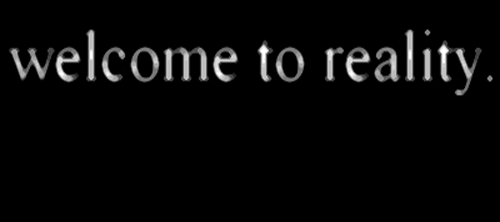
The biggest bankruptcies* of Donald Trump
It was always visible to everyone, but as long as you can keep generating capital, the myth can be maintained
Trump Ice
In 1995, Donald Trump founded the Trump Ice Natural Spring Water brand (Trump Ice for short) - his own brand of bottled drinking water. However, the sales figures were not particularly good. After missed payments to the producer and a lawsuit against Trump Ice in this connection, production was discontinued. Today, only bottles with collector's value are sold on eBay and the like.
Trump Steaks
Donald Trump founded his own steak company in 2007. The company was to be dedicated exclusively to selling his favourite food and running a steakhouse in Las Vegas. The prices for the steaks varied between 199 and 999 US dollars. Despite such bargain prices, the company had to close in the same year. The steakhouse was shut down after the health department found 51 health code violations.
Trump University
In 2005, Donald Trump opened "Trump University" - a distance learning university specialising in the real estate industry that was not officially recognised as a university. Enrolment cost up to 35,000 US dollars, but many of the course instructors, who were allegedly selected by Donald Trump himself, often did not have the appropriate qualifications. The school had to be closed down for good in 2011. Thousands of students filed a lawsuit against the former US president, who relented in 2017 and offered a settlement despite his supposed innocence. This was confirmed by the US Court of Appeal in 2018 and secured compensation of USD 25 million for the more than 4,000 ex-students.
New Jersey Generals
In 1984, Donald Trump bought his own football team, the New Jersey Generals. However, they did not play in the famous National Football League, the NFL, but in the smaller offshoot, the United States Football League (USFL). Just one year later, the team was bankrupt and the entire United States Football League with it. Trump had tried with all his might to bring about a merger of the UFSL with the NFL. This prevented Donald Trump from taking over a team in the NFL.
Trump Vodka
According to Donald Trump himself, he does not drink alcohol. However, this did not stop him from launching his own premium vodka on the market in 2005. However, production was discontinued in 2011.
Trump Magazine
Donald Trump made several attempts to land a hit in the luxury magazine segment. After two failed attempts, he launched the quarterly "Trump Magazine" in 2007, which covered topics such as yachts and other toys for the rich. However, the magazine was cancelled in 2009.
Gotrump
In 2006, Donald Trump ventured into a search engine for luxury travel. It included private jets, tickets for exclusive events and supposedly personal recommendations and travel tips from Donald Trump. However, it was shut down again after just one year due to poor reviews.
Trump: The Game
Trump tried twice to establish himself on the board game market with the board game "Trump: The Game", but failed twice. The game is, of course, about money. The game first came onto the market in 1989, but was discontinued shortly after its release. In 2005, he tried a new edition in collaboration with Parker Brothers, but this version also failed.
Trump Shuttle
In 1989, Trump bought his own airline, "Trump Shuttle". The airline was to fly business people back and forth between New York, Boston and Washington. The interior of the Boeing 727 was elegantly furnished with maple panelling and chrome seat belt buckles, and gold fittings were installed in the toilets. However, the luxury was too expensive for the passengers. Three years later, the over-indebted company was sold to US Airways.
Trump Entertainment Resorts
With the company "Trump Entertainment Resorts", Donald Trump operated several casinos in the gambling metropolis of Atlantic City, including: Trump Taj Mahal, Trump Plaza and Trump Marina. All were closed between 1999 and 2016, and the company filed for bankruptcy three times between 2004 and 2014. In 2014, debts are said to have totalled around 1.8 billion US dollars. Trump himself withdrew completely from the company in 2016 and sold his shares to billionaire Carl Icahn.
Trump Mortgage
In April 2006, Donald Trump announced the founding of his own mortgage bank, Trump Mortgage, at a press conference. He predicted a rosy future for his endeavour and that the bank would soon become the largest lender for home loans in the USA. However, as with "Trump Magazine", the timing was not exactly fortunate. Just one year later, the former US president's mortgage bank had to file for insolvency.
#myth#donald trump#successful businessman#or not#x#Law professor Andrew Weissmann#self-made billionaire#bankruptcies#wikipedia#Professor of Business Law Will Thomas#University of Michigan#forbes magazine#Trump Ice#Trump Steaks#trump university#New Jersey Generals#Trump Vodka#Gotrump#Trump: The Game#Trump Shuttle#Trump Entertainment Resorts#Trump Mortgage
6 notes
·
View notes
Text
youtube
Trump University Is Protest-Free
0 notes
Text

53 notes
·
View notes
Text
Is our criminal justice system really that weak? Trump is violating his pre -trial release conditions and no one is doing anything. You lose all credibility when you don’t follow through. Abaddon Abaddon. And so it begins.
#abaddon#donaldjtrump#orangutan#wannabedictator#cultleader#dumptrump#liar#insurrection#felon#p01135809#trump university#trumpcharity#trumpcasinos#gaslighting
0 notes
Text

#healthcare#democrats#republicans#bernie sanders#politics#donald trump#leftism#universal healthcare#x#twitter#doctors#horror healthcare
2K notes
·
View notes
Text

A loser is somebody who thinks Trump is a highly successful businessman because he portrayed one on TV – with massive amount of help from editors.
The myth of Donald Trump's success in business is shattered
You claim that the MSNBC article is biased because it happens to be from MSNBC? Well, the conservative American Enterprise Institute makes pretty much the same point.
Trump’s Tax Returns Show Simply That He’s a Lousy Businessman
You have to try to be this bad in the casino business.

Would you consider somebody who went bankrupt 6 times to be successful? Me neither.

The Apprentice gave him a chance to whitewash his past public image as a loser.
Donald Trump is a nepo baby who squandered the money he got from his real estate tycoon daddy.
The only thing Trump was ever good at in his life is scamming people.

Don't let anybody get away with saying that Trump is good at business. 😅
#donald trump#nepo baby#trump is a loser#trump has been a failure#trump is lousy at business#trump's six bankruptcies#the apprentice#the trump organization#scams#trump university#election 2024#vote blue no matter who
6 notes
·
View notes
Text
A must watch.
Ken Burns warns about Trump during his commencement speech at Brandeis University:
"He is the opioid of all opioids"
#ken burns#brandeis university#donald trump#warning#pay attention#republican extremists#republicans#gop#bad politics#we are in trouble#vote blue#end the Trump nightmare#president biden#vote democrat#head the warning#us politics#breaking news#america#maga
583 notes
·
View notes
